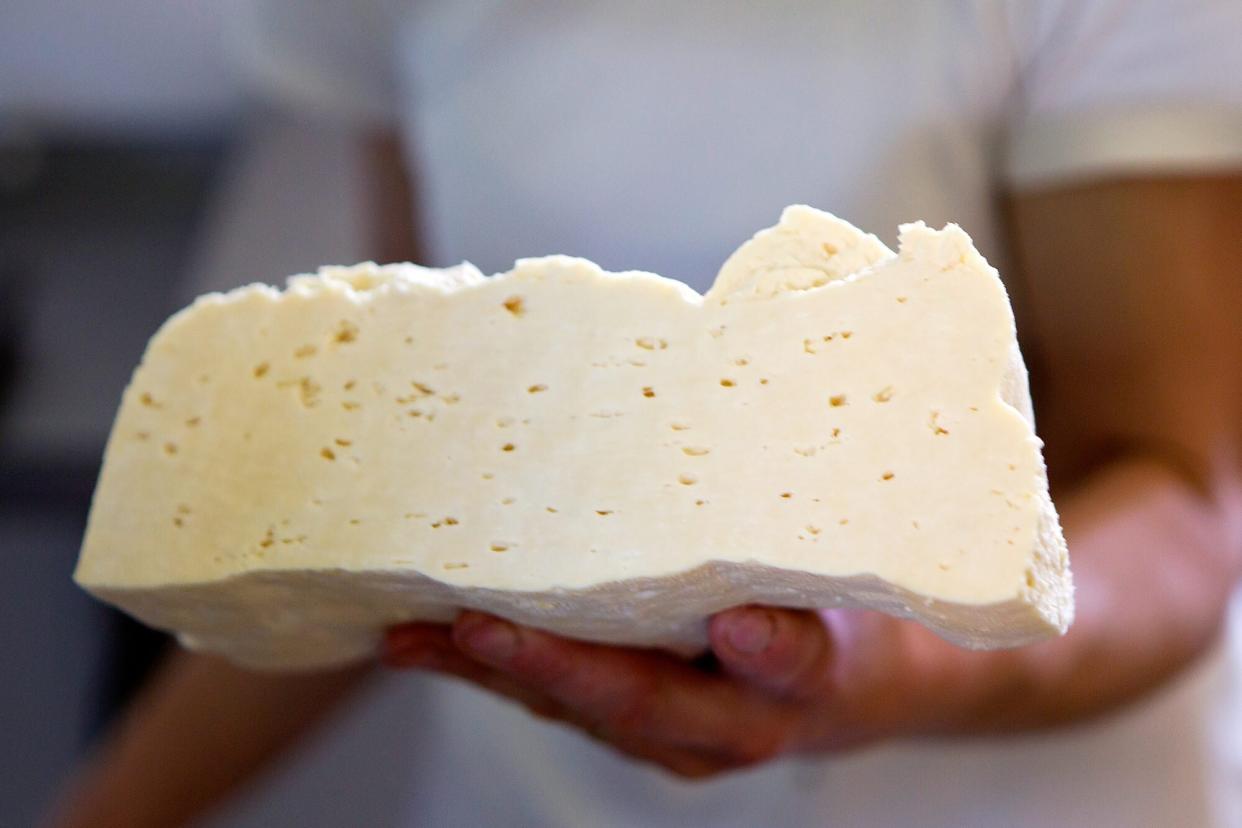One of France's Oldest Cheeses Is Halting Production Due to Drought

Rabany Sebastien / Getty Images
Some of the impacts of climate change are very straightforward, for instance, temperature changes having a detrimental effect on wine grapes or coffee beans. But the extended ripple effects of global warming can be equally problematic, if not as plainly obvious. One such example: This summer, a French drought has damaged typically green pastures which are used for grazing by a specific type of cow — and as a result France has been forced to halt the production of Salers cheese.
Salers is a semi-hard cow's milk cheese which France's National Institute of Origin and Quality says is one of the oldest cheeses, dating back millennia, and has had a designation of origin in the village of Salers — located in central France about midway between Bordeaux and Lyon — since 1961. But due to the drought, the Guardian reports that, for the first time ever, the appellation d'origine protegee (AOP) has had to halt production of the cheese. The reason: The AOP rules require that the cheeses must be produced by Salers cows with a minimum of 75 percent of their feed coming from grass in local pastures. The current drought has made that essentially impossible.
"There is nothing left to eat at home. The ground is so dry, hard, that in places it looks like ashes. It's dust," Laurent Roux, one of the AOP's 76 breeders, said according to France Bleu, adding that his cows have not been able to graze since late June. "We have always experienced periods of drought in the summer, but this is hard, very hard."
Lauren Lours, the head of the AOP, explained that, even if they broke the rules, the cheese — which can only be produced from April until November — would not be the same. "Salers is a seasonal cheese, made with the seasonal grass. That is one of the pillars of its identity," Lours told the French news site. "With more hay [instead of grass], the body would be whiter; we would have less aromas. Our product still has a certain notoriety among consumers; we don't want to break it."
The hope is that rain will eventually start to fall and production will be able to resume by September, but even in that case, production is estimated to drop by at least 15 percent, according to reports. In the interim, the value of the milk produced by the cows will also drop since it's no longer needed to produce Salers, with Lours stating that the shutdown will cut milk values by as much as a third, adding, "It is very complicated given the context, with inflation and rising costs."

